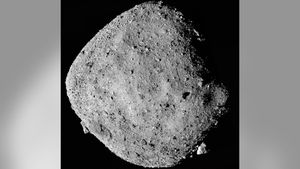The contentious nomination of Robert F. Kennedy Jr. to lead the Department of Health and Human Services (HHS) has sparked heated discussions within Washington, centered on his polarizing anti-vaccine stance and connections to trial lawyers. The scrutiny intensified this week as Kennedy faced his first Senate hearings since being nominated by President Donald Trump.
The editorial board of The Wall Street Journal expressed firm opposition to Kennedy's candidacy, asserting, "Senate Republicans have an obligation to scrutiny his giant closet of business conflicts and dubious ideas." Their critique reflects broader apprehension surrounding Kennedy's history of spreading vaccine misinformation, which many argue could undermine public health initiatives should he ascend to the HHS leadership. The Journal opined, “Most troubling is his long record of anti-vaccine advocacy,” highlighting Kennedy’s adjustments to his vaccine positions since the nomination, a strategic pivot seen by many as insufficient.
Senate Finance Committee and Senate Health, Education, Labor and Pensions (HELP) Committee hearings this week became arenas of exchange between Kennedy and senators, who each brought their own financial connections to light. Some senators, like Bill Cassidy of Louisiana, expressed their hesitance and the unique conflict they faced. Cassidy, who has spearheaded initiatives aimed at vaccinations, admitted to feeling the pressure from constituents who back Kennedy, stating, "I struggled with whether to vote to confirm Kennedy... That’s my dilemma, man." His internal conflict signals the larger tensions at play as public health concerns clash with political loyalty.
Kennedy's supporters have attempted to leverage this scrutiny to spotlight the financial contributions senators themselves have received from the healthcare industry. During one hearing, he asserted, "Our kids are getting sicker and sicker... This is not making our country healthier. It’s making our country sicker." This bold statement reflects the frustration of many dissatisfied with the current healthcare paradigm, prompting calls for significant reform.
Yet the coalition of opposition against Kennedy is formidable. Democratic Senator Elizabeth Warren and other influential figures have spoken out against his nomination. Warren's previous criticisms suggest potential hazards of Kennedy’s litigation history, stating it could “bankrupt” vaccine manufacturers. Such perspectives are bolstered by detailed reports from watchdog groups like OpenSecrets. Their data outlines extensive donations received by committee members from the pharma sector, causing senators’ motives to come under increased scrutiny. Senators have received significant funding from pharmaceutical companies, which many fear may corrupt the confirmation process.
Adding another layer of complexity, close examination revealed approximately five percent of the supporting doctors who signed letters endorsing Kennedy had faced disciplinary actions—including revocations and suspensions of their medical licenses. This has raised doubts about the credibility of the endorsements Kennedy has received. A letter submitted to the Senate intended to bolster Kennedy's nomination boasted signatures from nearly 800 doctors; yet, investigations found many of them lacked legitimate medical credentials, and some were not doctors at all.
Among those who vocally supported Kennedy is Dr. Simone Gold, who recently faced her own controversies, having been pardoned for actions relating to the January 6 Capitol riots. Gold labeled Kennedy as "an honorable and honest person" emphasizing the increasing polarization around Kennedy’s nomination, where his most significant endorsements spring from fringes of the medical community.
The hearings are emblematic of Washington's deep ties to special interests, especially within healthcare—a space where the influence of cash runs deep and can often dictate the course of policy and confirmation, posing questions about the integrity of public health governance moving forward. For example, senator involvement and investment disclosures linked to industries under Kennedy's purview shed stark light on potential conflicts of interest. Senator Ron Wyden, for his part, disclosed familial investments valued significantly within the healthcare sector, leading to questions about impartiality.
Kennedy’s challenges are compounded by the rising tide of scrutiny on his financial interests and potential conflicts. He has previously indicated plans to transfer his financial stake related to vaccine litigation to his son, marking efforts to disentangle personal financial interests from his position. Such moves may seem like attempts to buffer against concerns, but they do little to alter the prevailing skepticism from both sides of the aisle.
At the heart of it all is the pervasive conflict between personal convictions and political pressures. Various senators, across the aisle, are evaluating their positions carefully, aware their votes carry weight and consequences not only for themselves but for the public health policies they dictate. Supporters argue Kennedy will anchor the HHS by bringing forward new ideas under his “Make America Healthy Again” initiative. Yet, detractors worry it may cost more lives than it saves.
The outcome of the hearings remains uncertain, but the conflict they represent transcends Kennedy’s nomination. It opens dialogues about what genuine healthcare reform looks like and how Washington can maneuver through its existing web of financial entanglements. Whether Kennedy's ties to the anti-vaccine movement will stymie his efforts to contribute positively to the nation’s health agenda is the foremost question facing both senators and citizens alike.



